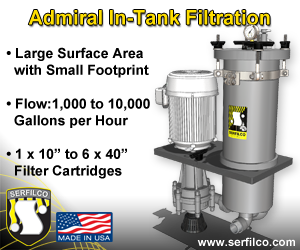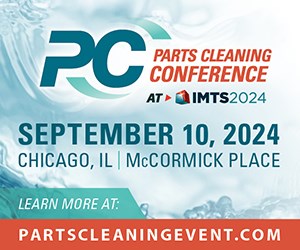Industry Urges Caution as White House Reviews EPA’s Proposed PFAS Superfund Listing
Stakeholders urge the White House regulatory review office to cautiously review the proposed hazardous substance listing of PFOS and PFOA under CERCLA and to identify the potential negative impacts on Superfund cleanups.
The White House Office of Management and Budget (OMB) is reviewing EPA’s draft proposed rule to designate perfluorooctanoic acid (PFOA) and perfluorooctanesulfonic acid (PFOS) as “hazardous substances” under Comprehensive Environmental Response, Compensation & Liability Act (CERCLA or the Superfund law). Such a designation would set new precedent as EPA has never before designated a new chemical as a CERCLA hazardous substance, and would trigger a host of actions, from release reporting to cost recovery and contribution claims.
As part of its review, OMB officials are meeting with stakeholders to receive input on the rule. Industry groups are urging OMB to reconsider EPA’s plan to designate PFOS and PFOA as “hazardous substances” under the Superfund law. Specifically, they claimed that the listing will increase cleanup costs and delay cleanups without reducing human and environmental exposure to the chemicals. More specifically, they argue such a designation could cause delays to cleanups and redevelopment efforts as current cleanups and those that had already been completed could be re-opened to address potential PFAS releases.
The industry groups also asked OMB to consider the potential costs and impacts of the proposed listing, and convene a SBREFA panel to address small business impacts. They suggested that EPA to conduct a gap analysis to examine what actions it could take under existing regulations to address PFOA and PFOS, study what additional entities would be affected by a designation, and the cost implications of such a designation, among other analyses.
The proposed designation could have significant implications throughout society and the economy because the scope of liability under CERCLA sweeps in multiple, disparate companies, local governments, family businesses, and other organizations potentially liable for a single site. Complicated litigation to determine responsibilities can then take decades. In addition, uncertainty regarding applicable cleanup standards could increase cleanup costs and delay remediation efforts at Superfund sites.
Supporters of the hazardous substance designation (including state and local governments and environmental advocacy groups) say it would jumpstart the process of identifying and cleaning up PFAS-polluted communities. They claim that without such a designation, EPA is limited to what it can do to address PFAS as “pollutants or contaminants.” The hazardous substance designation would also trigger reporting requirements for releases over a certain threshold, thereby prompting an investigation and potential cleanup.
Without the designation, EPA would not have notice of a release of PFAS and has no way to compel liable parties to pay for PFAS contamination. State regulatory officials also claim that the designation under CERCLA could boost regulators’ ability to bring sites that already have construction of their remedies in place, back for additional assessment and cleanup to address PFAS.
EPA under its PFAS Strategic Roadmap has said it plans to propose the rule by March. OMB reviews are generally intended to last 90 days, so EPA appears to be on track to issue the proposal in March 2022, unless OMB returns the rule to EPA for further review on costs and potential small business impacts. The agency expects to issue a final rule in the summer of 2023.
NASF will continue to monitor this rule development and provide updates to NASF members. If you have any questions or would like additional information on this issue, please contact Jeff Hannapel with NASF at jhannapel@thepolicygroup.com.
This update is courtesy of the National Association for Surface Finishing (NASF). For more information or to become a member, visit nasf.org.
Related Content
Bryan Leiker, MFACA, Discusses CARB Public Hearing Over Calif. Hex Chrome Ban
Bryan Leiker, executive director, Metal Finishing Association of California, offers a recap of a January 27, 2023, public hearing conducted by the California Air Resources Board prior to an impending ruling on a proposed ban of hexavalent chromium use for finishing operations in the state.
Read MoreOSHA, DOT and EPA Penalties Increase for 2023
The Department of Labor to revise civil penalty amounts for employer OSHA violations.
Read MoreTrivalent Chrome Overview
As the finishing industry begins to move away from the use of hexavalent chromium to trivalent chromium, what factors should finishers consider as they make new investments? Mark Schario, chief technology officer for Columbia Chemical offers a helpful overview of this complicated topic.
Read MoreFinishing Another Year — Looking Back at the Trends of 2023
Products Finishing reflects on a year of reporting on the surface finishing industry and looks ahead to what may be in store for 2024.
Read MoreRead Next
Episode 42: An Interview with Robin Deal, Hubbard-Hall
Hubbard-Hall wastewater treatment specialist Robin Deal discusses the latest trends in wastewater management.
Read MorePowder Coating 4.0: Smarter, Faster, More Efficient and Connected
New tools reduce cost and waste, lower manufacturing footprint of powder coating operations.
Read MoreThe 2024 Ford Mustang: All the Colors Available
Although Chevrolet has announced the end of the Camaro and Dodge is offering “Last Call” editions of the Charger and Challenger, the Ford Mustang is launching to its seventh generation.
Read More
























